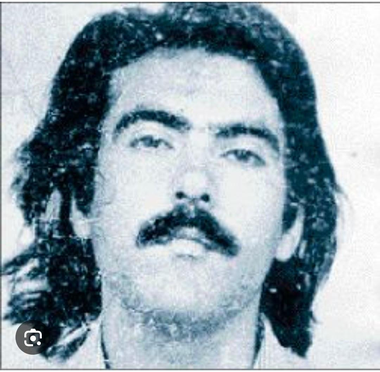
From Athens Indymedia
July 4, 2024
“And in the sky a dead man travels…
How to join him?
The battle left both sides dead
except mine is sad
Because he knows, he knew, that in his end
He would have no friend beside him
anyone who went would immediately be suspect
a murderous terrorist
UNKNOWN two days ago the headlines said
until the evidence was found
Two days his flesh lay unclaimed
unburied sacrilegious brothers in Christ
But the story turned upside down
They loved the dead man, he was clean
handsome, how to scare a dead man
to photograph him as they know him, a murderer, a killer
And two trapped
still not found, as if the earth had opened up and swallowed them,
one of them said: “Unenslaved Greek soul…”
“Surprise is still afoot, life is still playing.”
(Katerina Gogou)
Abraham Lesperoglou invaded our landscape, the young insurgent anarchists in the 1980s, after the Battle of Gyzi and the death of Christos Tsouchouvis. He was one of the “two trapped, still not found, as if the earth opened up and swallowed them,” as Katerina Gogou captures in her poem, in a way that only she knew.
And then, there was a person who was mythical to us, not even twenty years old. This photo of the tough – but with a subtle irony – face with the hair and moustache was the only trace he left behind, as the number one wanted man for the action of the Anti-State Struggle: two cops dead in a robbery in Galati, a deceased prosecutor, the three cops of Gyzi, but also a seriously wounded cop in an earlier gold expropriation.
His arrest in December ’99, while returning illegally from abroad, is when i found him in prison. He came to the 5th ward where Nikos M and I were. We immediately rushed to greet him, to ask him if he needed anything. We found a wall. He bluntly told us “I don’t need anything,” and made to leave, in the manner of a hardened conspirator who had endured seventeen years of fugitive justice (since the first incident in ’82 with Gold).
“Okay,” we replied. “Our names are this and this. Ask your lawyer Fytraki about us.” Because, apparently, Mr. Spyros, who we also lost a few days ago, was one of the lawyers who rushed to defend (as always) the “terrorist.”
The next day he came and found us. He had obviously asked. And so a friendship was born that continued for twenty-five years. Always a conspirator. Without a word about the old days.
In recent years his health had been failing. One of his joys was to come down to my land in Laconia, which he too loved. We would meet at the sea in Vathi or he would climb up to my village in Taygetos. And it was the first time he started talking to me. About his family and their militant history, about his early years in Peristeri during the junta, about his student years of militant political conscription in Thessaloniki, about the “craftsmen,” about the “kaffirs,” about Vangelis and their trips to Latin America, and much, much more.
We spoke on the phone on July 1. I had come down to the village and he was in Vathi. We should get together. He called me on the morning of July 3rd. I thought he was coming. But he was in the hospital in Sparta. “They’ll take me to Athens to die,” he said in a voice that was just coming out. I saw him for the last time as he was being taken to the hospital in Tripoli. The hospital in Sparta that serves an entire prefecture couldn’t do the urgent coronary angiography, as it had been torn apart by neoliberal looting. He died a few minutes later, in the ambulance.
Comrade rebel, I salute you
– Kostas K